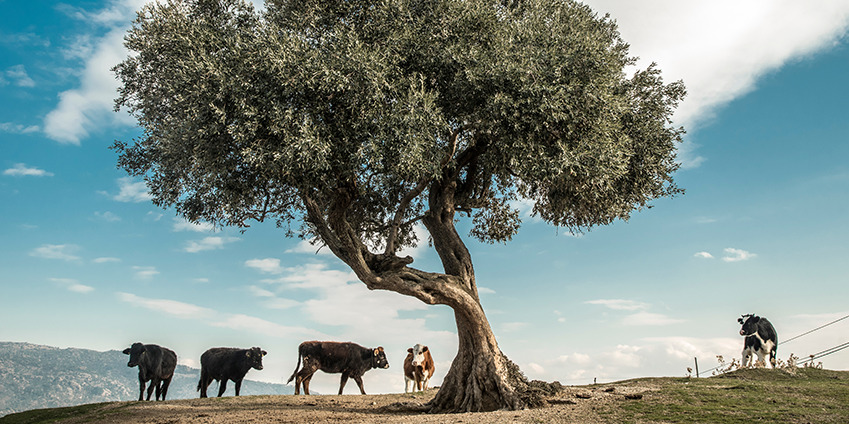A recent verdict by Greece’s top court on the ritual slaughter of animals has raised significant concerns for the country’s Muslim and Jewish communities, potentially impeding growth in Greek halal exports.
The ruling by the Council of State effectively withdraws a permit that has allowed the slaughter of animals without stunning them first as is usually required to produce halal and kosher meat.
In a case brought by an animal welfare organisation, the court ruled on October 26 that a joint ministerial decision of 2017 allowing the ritual slaughter of animals breached a 2009 European Union (EU) regulation on ‘the protection of animals at the time of killing.’
While halal standards can allow stunning, Anna Stamou, spokesperson for the Muslim Association of Greece, told Salaam Gateway that her organisation is preparing a statement with other European partners, condemning the court’s decision. The ritual slaughtering of animals “does not fit the pace of production that the meat industry wants,” she said.
Dr Tzichat Chalil, the Mufti of Komotini, an area in north-eastern Greece with a significant Muslim minority, told Salaam Gateway that as long as the animal is not irreversibly damaged at the moment of slaughter and its blood is allowed to drain, the meat will still be halal even if stunned before. This will not be an issue for the slaughtering of most small animals such as poultry, sheep and rabbits. “Based on the current rules in Greece, the already applied electrical anaesthesia in birds and lambs is permissible for halal. The only animals where anaesthesia is not allowed (as it causes irreparable damage to the animal) are in cattle,” Mohamed Abdeltawab, certification and quality manager of Halal Assurance and Quality Greece (HAQ Greece) told Salaam Gateway.
Because cattle meat production in Greece is low, the impact of the court ruling may be small. Yet resolving the issue and allowing the production of halal meat from cattle could benefit the industry in Greece, Tzemali Karahasan, CEO of Karahasan, producers of halal cured and prepared meat products in north-eastern Greece, told Salaam Gateway. There is a significant halal market in Greece with potential for growth, he added, with an estimated 500,000 Muslims living in the country of 10.7 million people.
But he noted that the production of halal beef in Greece does not meet the demand his company is seeing and thus 20% of its halal beef requirements are imported from Poland and then further processed. The company exports around 10 tonnes of products to Germany annually and demand is rising, Karahasan said.
Abdeltawab of HAQ Greece, echoed this sentiment noting that he expects “explosive increase” of Greek halal meat exports to the UAE and Saudi Arabian markets.
The court ruling is particularly damaging for the Jewish community in Greece, as the requirements for making Kosher meat in the country are stricter and do not allow for the stunning of animals before slaughtering, with no exception. Greece’s Jewish population is small, however – just 5,000 according to the European Jewish Congress. In a statement, the Central Board of Jewish Communities in Greece (KIS) said the decision “violates the right of Greek Jews to freely exercise their religious duties and to observe the traditions of the Jewish religion.” However, the president of KIS, Victor Isaak Eliezer, told the Jerusalem Post that he hopes Greek authorities will take measures to “ensure the continuation of the observance of the religious obligations of Greek Jews.”
The Greek authorities’ goodwill may be the main way of resolving the issue as a legal challenge in Europe would be very uncertain. In December 2020 the EU Court of Justice upheld Belgium’s ban on slaughtering animals without first stunning them. This decision will loom over any court challenge on European level. Even though the 2020 ruling underlined that ritual slaughter was protected by the 2009 regulation, it allowed Belgium to effectively ban one element of such meat processing – killing without stunning.
© SalaamGateway.com 2021 All Rights Reserved


Michael Kosmides